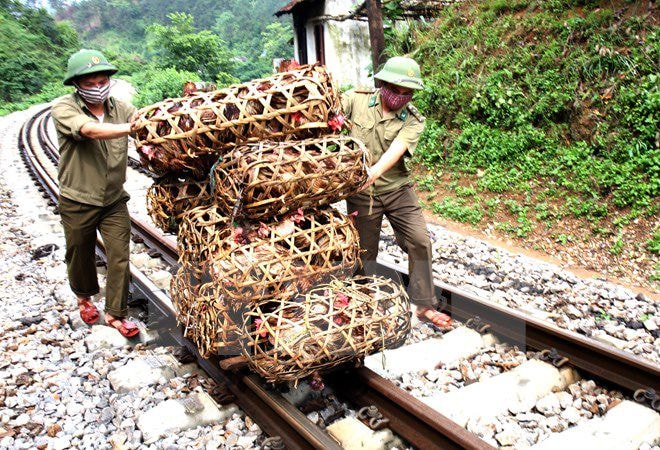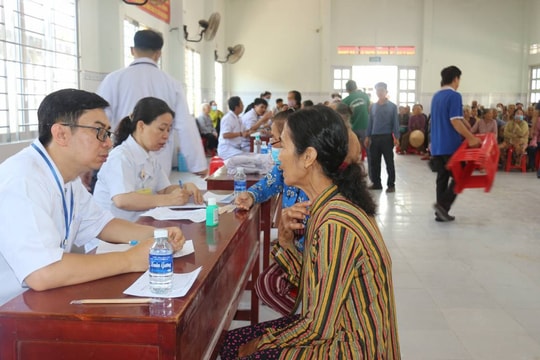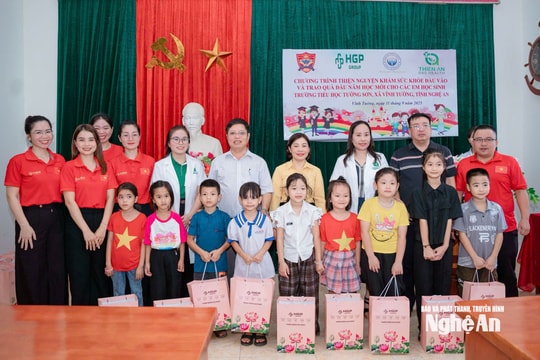Many risks of H7N9 flu transmission from China
Influenza A/H7N9 in humans is a severe acute respiratory disease caused by the avian influenza A/H7N9 virus transmitted to humans. The disease progresses rapidly and has a high mortality rate.
 |
| Border Guard Station No. 5 Bao Lam (Lang Son Provincial Border Guard Command) seized smuggled poultry. (Photo: Dinh Hue/VNA) |
In response to the news that China continues to detect cases of A/H7N9 flu, on November 16, a representative of the Department of Preventive Medicine (Ministry of Health) affirmed that trade, exchange, and travel across the border between Vietnam and China are very complicated, especially the trade of smuggled poultry, so the risk of disease spreading across the border is very high if effective prevention measures are not implemented, especially during the winter-spring season and the Lunar New Year.
Influenza A/H7N9 in humans is a severe acute respiratory disease caused by the influenza A/H7N9 virus in poultry transmitted to humans. The disease progresses rapidly and has a high mortality rate. People infected with influenza A/H7N9 have symptoms of rapidly progressing acute respiratory disease with symptoms of fever, cough, difficulty breathing, severe pneumonia and respiratory failure. There is currently no vaccine to prevent the disease and no specific treatment.
To proactively prevent the disease, the Ministry of Health recommends that people regularly wash their hands with soap; practice good personal hygiene, keep their living space well-ventilated, limit contact with sick people; do not use poultry or poultry products of unknown origin; ensure food safety. When discovering sick or dead poultry, people must immediately report to local authorities and veterinary units in the area.
In particular, people returning from epidemic areas must apply disease prevention measures and declare their health status to local health authorities for monitoring. When experiencing flu symptoms such as fever, cough, chest pain, and difficulty breathing, patients should immediately go to a medical facility for timely consultation, examination, and treatment.
For tourists traveling to countries with A/H7N9 influenza outbreaks, the World Health Organization (WHO) recommends that visitors should not go to poultry slaughterhouses; stay away from poultry farms or avoid contact with live poultry in poultry markets; and should not come into contact with objects contaminated with poultry or animal feces. People should regularly wash their hands with soap; comply with food safety and hygiene and practice good personal hygiene.
People who show symptoms of acute respiratory infection while traveling or immediately after returning from an area with an influenza epidemic should be examined and diagnosed to determine the disease.
The World Health Organization does not recommend screening measures at border gates, travel restrictions or international trade restrictions…/.
According to VNA
| RELATED NEWS |
|---|




.jpg)



